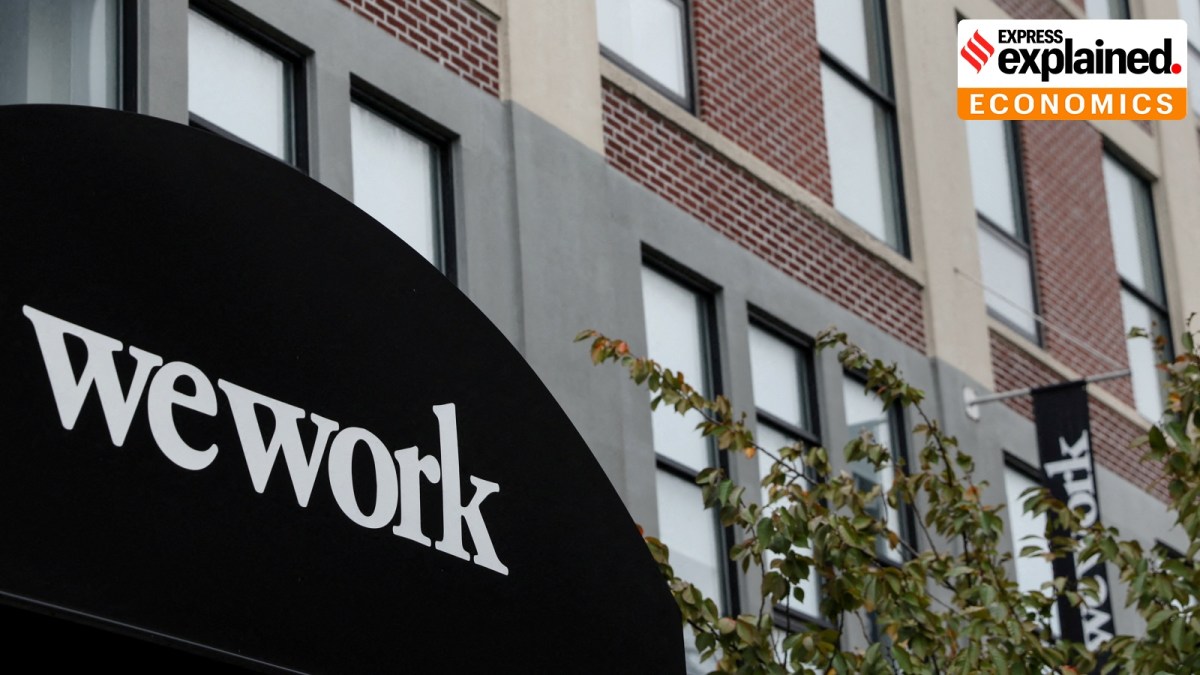WeWork India IPO: Why the company faces questions over finances, governance and promoter disclosures
The company says its financial position was strong and denies any concealment of legal matters

WeWork India Management Ltd, which recently launched its Rs 3,000-crore initial public offering (IPO), has come under scrutiny over its financial health, promoter-related proceedings and share-pledging practices. The company, which operates the India franchise of the co-working major WeWork Inc, is facing questions from proxy advisory firms and investors even as it defended its disclosures and financial standing.
WeWork India filed its Red Herring Prospectus (RHP) with the Securities and Exchange Board of India (SEBI) on September 27, 2025, and opened its IPO earlier this month. The issue, entirely an Offer for Sale (OFS) of 46.3 million shares, allows existing shareholders — mainly Embassy Buildcon LLP and WeWork International — to sell their holdings. No fresh capital is being raised for the company’s operations.
“Operating cash flows remain negative, and lease obligations consume over 43 per cent of annual revenue, indicating persistent liquidity pressure,” InGovern said.
The firm also raised governance concerns, highlighting that over 53 per cent of promoter Embassy Buildcon LLP’s pre-IPO shares were pledged as security for borrowings worth Rs 2065 crore. Though these were released to comply with SEBI’s IPO rules, the firm said the promoters are contractually obliged to re-pledge them if the shares are not listed within 45 days of release. “This creates a governance risk where enforced pledging could erode promoter control and affect price stability,” the note said.
InGovern further alleged that the RHP did not include full details of ongoing criminal cases against promoters Jitendra Virwani and Karan Virwani. The cases, being investigated by the CBI, Enforcement Directorate (ED), and Economic Offences Wing (EOW), involve alleged offences such as cheating, criminal conspiracy, breach of trust, and money laundering.
Investor petitions before the Bombay High Court also alleged that the company failed to provide complete updates on these proceedings, potentially violating SEBI’s disclosure norms and raising questions about the “fit and proper” status of the promoters.
In response to queries from The Indian Express, WeWork India said its financial position was strong and its operations generate “significant EBITDA and free cash flow.” “Unlike many high-growth businesses, WeWork India’s operations generate enough cash to fund its capex and growth. This strength means the company does not need to raise fresh capital,” it said. The firm added that promoters invested Rs 500 crore through a rights issue in January 2025 at a valuation higher than the IPO price, reflecting their confidence in the business.
On the allegation that profits were artificially inflated, WeWork said, “The reported profit includes deferred tax credits as per accounting standards, but our cash flows clearly show the underlying health of the business. We have had positive operating cash flows since FY23.” It cited net cash from operations of Rs 1,289.9 crore in FY25, compared to Rs 1,161.8 crore in FY24.
Defending the valuation of Rs 648 per share, the company said the price band was determined through a book-building process involving top domestic and global funds. “The IPO price is about 5 per cent lower than the value at which promoters recently infused capital, underlining conviction in the business and fairness of pricing,” it said.
WeWork India said that a large portion of IPO proceeds went toward repaying the debt against which shares were pledged, significantly reducing the encumbrance. “The debt levels and pledged shares have come down sharply. These details are fully disclosed in the risk factors,” the company said.
WeWork denied any concealment of legal matters, especially proceedings against the promoters. “The details of all pending proceedings involving the promoters — including CBI and ED cases — are fully disclosed in the IPO documents under ‘Outstanding Litigation and Other Material Developments’ as required by SEBI,” it said.
It added that the ‘fit and proper’ criteria under SEBI (Intermediaries) Regulations do not apply to the company or its IPO. The company clarified that the CBI chargesheet mentioned in the media relates to a 2004 case and has been transparently included in the offer documents. It also said proceedings initiated under the Prevention of Money Laundering Act have been duly disclosed, including the current appellate status before the High Court.
WeWork India said its brand-licensing arrangement with WeWork Global is stable and protected. “Brand licensing is a common business practice, and we have all customary safeguards in place. Embassy Group has an exclusive long-term agreement with WeWork International for the use of the brand in India,” it said.
The firm also dismissed speculation that WeWork Global’s earlier bankruptcy could affect Indian operations, noting that WeWork Inc successfully exited Chapter 11 in June 2024 and is now majority-owned by real-estate software firm Yardi Systems, with SoftBank as a minority shareholder.
Despite the company’s clarifications, investor concerns remain. Analysts point out that the IPO — structured entirely as an OFS — channels all proceeds to selling shareholders, not to the company itself. “The listing adds visibility but not liquidity support for the business,” said a Mumbai-based fund manager.
The valuation, at around Rs 8,685 crore, remains steep compared with domestic co-working peers such as Smartworks and IndiQube. WeWork India’s governance, cash flows, and promoter disclosures are likely to remain under close watch even as the company insists it is financially sound and compliant with all regulations. The company’s shares traded at Rs 610.40 on the BSE on Tuesday.